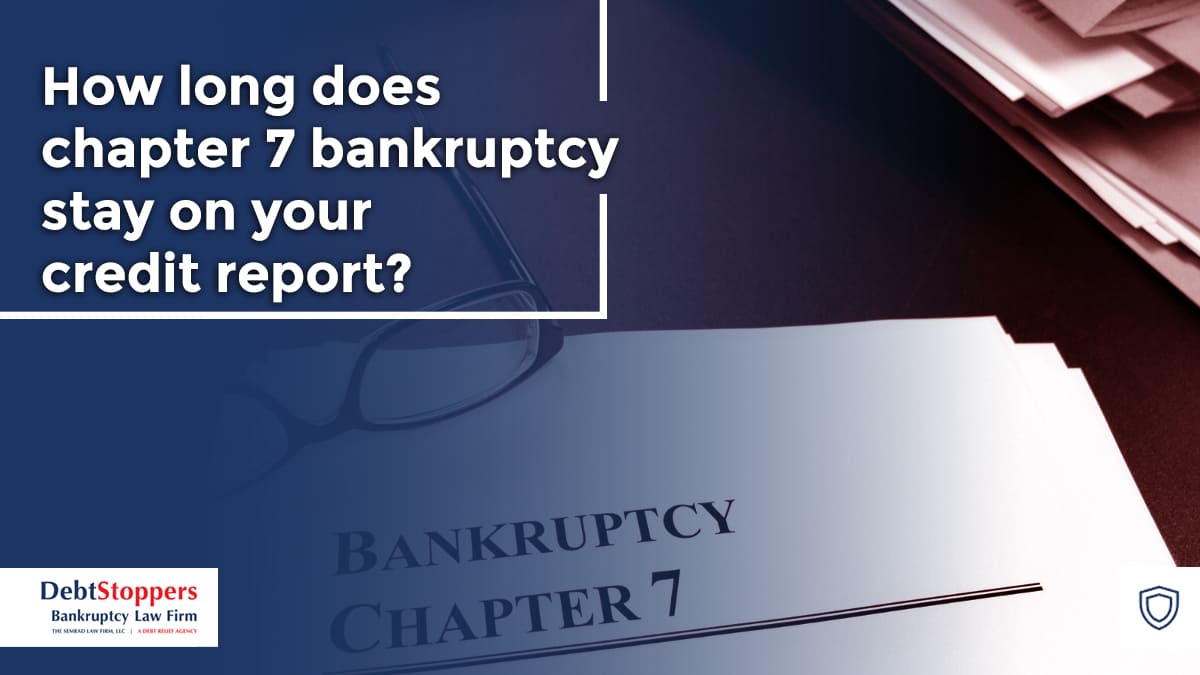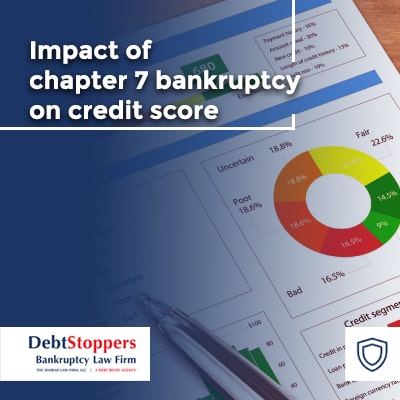How long does chapter 7 bankruptcy stay on your credit report?

Chapter 7 bankruptcy typically stays on your credit report for 10 years from the date of filing. During this period, it can significantly impact your credit score and your ability to obtain new credit. However, the impact on your credit score tends to lessen over time, especially if you work on rebuilding your credit after the bankruptcy is discharged.
What is Chapter 7 bankruptcy?
Chapter 7 bankruptcy is a legal process designed to help individuals and businesses discharge or eliminate most of their unsecured debts. is sometimes referred to as "liquidation" bankruptcy and is one of the most common types of bankruptcy filed in the United States. Chapter 7 bankruptcy is intended to give people a fresh financial start by wiping out debts such as credit card balances, medical bills, and personal loans.
How long does chapter 7 bankruptcy stay on your credit report?
Chapter 7 bankruptcy stays on your credit report for 10 years from the date your bankruptcy petition is filed with the court. This is longer than other information, which typically remains on credit reports for 7 years.
Does chapter 13 bankruptcy stay on your credit report for a shorter period?
Yes, Chapter 13 bankruptcy remains on your credit report for a shorter time period than Chapter 7 bankruptcy. Chapter 13 bankruptcy stays on your credit report for 7 years from the date of filing, whereas Chapter 7 bankruptcy stays on for 10 years.

Impact of chapter 7 bankruptcy on credit score
Filing for Chapter 7 bankruptcy has both short-term and long-term impacts on your credit score and overall financial health.
Short-term effect
Immediately after filing for Chapter 7 bankruptcy, you can expect a significant drop in your credit score and the bankruptcy will appear on your credit report as soon as it's filed and will remain there for 10 years from the filing date.
In the short term, it mayl be challenging to obtain new credit. Credit card companies, lenders, and other financial institutions can view Chapter 7 filers as high-risk borrowers. The credit that is available will likely come with higher interest rates and additional fees.
Long-term effect
After the initial drop, your credit score can gradually improve if you adopt responsible credit habits, such as paying bills on time, keeping low balances, and not taking on excessive new debt. As time passes and the impact of the bankruptcy on your credit score diminishes, you'll begin to qualify for credit products with more favorable terms, including lower interest rates and fees.
Bankruptcy discharges most unsecured debts (like credit card debt and medical bills), which can provide a fresh start and an opportunity to rebuild your financial stability without the burden of overwhelming debt. While the bankruptcy remains on your credit report for 10 years, its effect on your ability to obtain credit and loans will decrease over time, especially if positive credit behaviors are consistently demonstrated.
You may be eligible to apply for a mortgage as soon as 2-3 years after discharge, though terms and availability might be less favorable initially. The ability to get approved for other types of long-term loans will also improve over time with good financial management.
How can you rebuild your credit score after chapter 7 bankruptcy?
To rebuild your credit score after Chapter 7 bankruptcy, it’s important to say current on payments. Make sure that all payments are made on time, particularly for items not included in the bankruptcy like a car loan or mortgage.
It can also be helpful to obtain a secured credit card, which requires a cash deposit that serves as your credit limit. Use it sparingly and pay off the balance each month. You can also gte a credit-builder loan, which holds the money you borrow in an account until the loan is repaid. Successfully paying off the loan can improve your credit score.
It is also wise to monitor your credit score and report. Ensure that you regularly check your credit reports for errors and to track improvements. You are entitled to a free report from each of the three major credit reporting agencies once per year.
By understanding these impacts and actively working to rebuild your financial health, you can mitigate the negative effects of Chapter 7 bankruptcy and gradually restore your credit standing.

Where can you get legal and financial advice?
If you're seeking legal and financial advice about Chapter 7 bankruptcy, there are several resources you can turn to. Your best bet is to contact a bankruptcy attorney. You should find a firm that specializes in bankruptcy law, such as Debtstoppers, that can provide personalized legal advice.
Many bankruptcy attorneys offer free or low-cost initial consultations to discuss your situation. It's often best to start with a consultation with a bankruptcy attorney, as they can offer specific advice tailored to your circumstances.
You can also seek financial advice from certified financial planners and/or credit counseling agencies. Many of these resources are available online, through community legal clinics, and public libraries.





